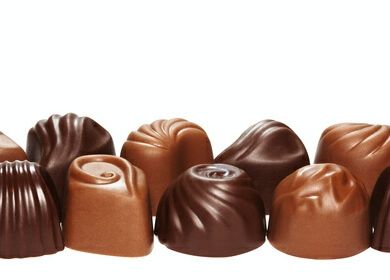
O.k. It is 3 o’clock in the afternoon again, and again you want a piece of chocolate. What is it about this particular time of the day that makes you desire a smooth, rich and dark piece of your favorite chocolate?
Perhaps it is not chocolate that you crave, but rather a nice smooth glass of red wine, or even a bag of salty potato chips. Most health experts would agree, food cravings are common, especially in people who do not eat a balanced diet. Understanding why they happen can be a bit more complex.
The next time you feel like you “just have to have it,” keep these truisms in mind.
Do I Need It?
Just because you are craving a huge bag of microwave popcorn does not mean that your body is lacking in microwave popcorn, or any ingredient therein. Some research regarding cravings indicates that certain foods trigger the release of endorphins in our brains, which make us feel good.
Other theories point to hormones, habits or even genetics. According to Michelle May, MD, author of Eat What You Love, many cravings have more of a mental basis than a physiological basis.
To try to decipher why you are actually having a craving, it is important not to overthink the desire. Try to get a handle on why you are actually experiencing the craving before giving in to it.
For instance, author Elizabeth Somer, RD, says to ask yourself if you are bored, stressed, angry or sad before you give in. This two-second self check could save you unwanted, empty calories and is a great way to stay in touch with your body.
If you still have the craving, and it is for something that is unhealthy, try drinking a big glass of water or going for a brisk walk. This may deter your attention long enough for the craving to pass.
Deficiencies
There is at least some evidence to support the fact that the body communicates to us through cravings. Sometimes we crave things because we actually need them.
For instance, the need for chocolate may, in fact, be your body telling you that your serotonin levels are low. Serotonin is produced by tryptophan, which is in chocolate, egg whites, beef, pork, chicken, turkey and bananas, just to name a few. Depression or a hormonal imbalance can both affect serotonin levels, as can a lack of healthy fats.
Metabolic disturbances and mineral deficiencies may also spark a craving. They key is to be in touch with how you feel. If you experience frequent cravings, it may be useful to keep a food journal.
Make notes about what you eat and when, as well as how you are feeling. Consume a diet that is rich in healthy fats, organic fruits, vegetables, nuts and seeds and drink plenty of filtered water. Often, this is all it takes to keep cravings at bay.
Too Much Refined Salt in Your Diet May Cause Cravings
Most foods found in nature are not inherently salty. However, processed foods are incredibly salty and very high in refined salt. If we consume a typical western diet, we are apt to take in too much refined salt without even knowing it. Once the body has a taste for salt it can trigger a habitual desire and a vicious cycle.
The salt habit triggers feel-good chemicals in the brain, similar to the effect of a narcotic. James Cocores, MD, says that it is possible to break the salt habit. Gradually wean yourself from salt and replace refined salt with Himalayan salt and eat more whole foods.
Don’t try to go cold turkey, though – this could result in symptoms of withdrawal. And make sure you don’t think that ‘salt is bad;’ our cells require salt to function properly – the point is to avoid refined salt.
Sugar Gone Wild
 As with salt, sugar cravings can lead to a vicious cycle of fulfillment that ends up costing us in many ways, especially in health and well-being. Some people crave sugar so much that even when they think about it they get happy. This happy feeling drives them to fulfill their desire, which releases happy hormones.
As with salt, sugar cravings can lead to a vicious cycle of fulfillment that ends up costing us in many ways, especially in health and well-being. Some people crave sugar so much that even when they think about it they get happy. This happy feeling drives them to fulfill their desire, which releases happy hormones.
A 1990 study at John’s Hopkins University found that babies who had been given a tiny amount of sugar water whimpered until it was given to them again. Once they were given the sugar water, they stopped crying. Plain water did not seem to be enough, as the babies kept on crying. (Smith et al, “Orally mediated sources of calming in 1-3 day old infants,” Devel Psychol 1990;26:731-7).
Sugar is also an appetite stimulant which makes it very hard to eat only a little. This might help explain while one Oreo is never enough. This is just another reason to take processed foods out of your diet.
The only way to effectively reduce your cravings for sugar is to start reducing your consumption. Read labels and be aware of where sugar hides. Switch from refined sugar in your home to coconut crystals; they are naturally sweet and have much less impact on your blood sugar levels.
We recommend Coconut Secrets™ Coconut Sap Crystals. You can purchase your very own 12 oz can of Coconut Crystals by clicking here.
-The Alternative Daily

